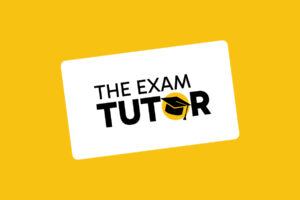
What are GCSE Equivalency Tests?
The Exam Tutor helps learners of all ages prepare for GCSE Equivalency Tests, but what are they and who needs to take them? In this blog, we will unravel the intricacies of GCSE equivalency tests, shedding light on what they are, their importance, and how they empower learners to achieve their academic and professional goals.
What Are GCSE Equivalency Tests?
GCSE equivalency tests are standardised assessments designed to measure a candidate’s knowledge and skills in subjects such as Mathematics, English, Science and Biology. These tests serve as an alternative qualification for individuals who did not obtain GCSE qualifications during their school years or those looking to improve their existing grades. Many universities, colleges, and employers recognise GCSE equivalency qualifications, making them invaluable for further education and career opportunities, especially within teaching which is the main career path that requires GCSE equivalency tests.
Why GCSE Equivalency Tests Matter
- Access to Higher Education: Many higher education institutions require GCSE qualifications for admission. Equivalency tests provide a pathway for individuals who lack these qualifications, enabling them to pursue higher education and expand their academic horizons.
- Career Advancement: Certain professions demand specific GCSE qualifications. Equivalency tests offer a chance for individuals to meet these requirements, opening doors to diverse career opportunities they might not have had access to otherwise.
- Personal Fulfilment: Education is not merely a means to an end; it is a lifelong journey. Equivalency tests empower individuals to fulfil their educational aspirations, boosting confidence and self-esteem in the process.
Preparing for GCSE Equivalency Tests
Preparing for GCSE equivalency tests requires dedication, discipline, and effective study strategies. Here are some tips to help candidates excel in their preparations:
- Understand the Exam Format: Familiarise yourself with the structure of the exam, including the number of sections, types of questions, and time limits. This understanding will enable you to manage your time effectively during the test. It is key to note that there are only two recognised GCSE equivalency exam providers: A Star Equivalency and Equivalency Testing
- Create a Study Plan: Develop a detailed study plan that covers all the topics included in the exam syllabus. Break down your study sessions into manageable chunks, focusing on one topic at a time.
- Utilize Resources: Access online resources, textbooks, practice exams, and study guides related to the subjects you are preparing for. These resources offer valuable insights, sample questions, and explanations to enhance your understanding.
- Practice Regularly: Practice is key to success. Solve practice papers and mock exams under timed conditions to simulate the exam environment. Regular practice will improve your confidence and performance.
- Seek Support: If you find certain topics challenging, don’t hesitate to seek help from tutors, online forums, or study groups. Collaborative learning can provide new perspectives and enhance your grasp of difficult concepts.
GCSE equivalency tests represent a significant opportunity for individuals to bridge educational gaps, pursue higher studies, and achieve their career goals, especially when it comes to getting into teaching through the PGCE or SCITT route. They are fully accepted by all initial teacher training providers. The question is which GCSE equivalency test provider should you opt to go with?
Get in touch for our support!
The Exam Tutor Team
We help thousands of students each year with revision, courses and online exams.
